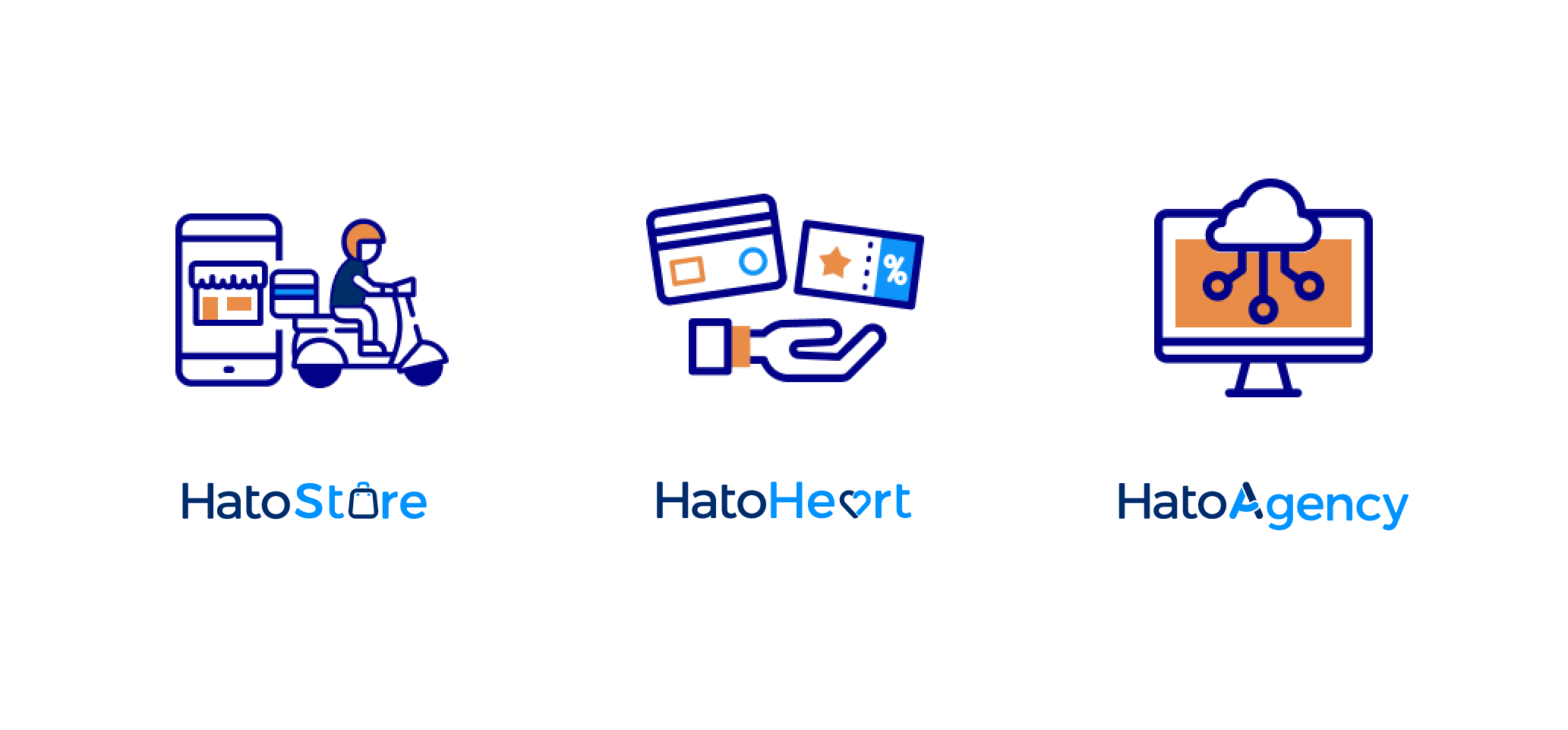
Hato Hub

It's the era of food delivery
For Thais, food is a great deal. And in this digital age, their consumption behavior has swiftly shifted. Online food delivery services have become a preferred channel for many customers over the past few years, so businesses have to adapt as quickly to catch up to the current.
Although modern delivery platforms have made it so simple to start selling online, it is still a challenge for restaurants to build and sustain their brand in the long run. Hato Hub was founded with the objective of breaking this obstacle by providing businesses with all the necessary restaurant management tools.
Digital transformation tools catered to F&B businesses
Hato hub is a full-cycle food delivery platform designed for food businesses and grocery stores. It offers three services designed to facilitate from SMEs to chain restaurants that want to create online sales channels without the need for knowledge in programming.
1) Ordering and delivery platform (Hato Store)
A customizable website that comes connected to an online payment gateway, driver services, and a backend management dashboard. Brands can run their businesses without physical storefronts and integrate the platform with their preferred social channels.
2) Omnichannel CRM system (Hato Heart)
Features such as membership, loyalty programs, and special privileges help enhance customer relations across offline and online channels.
3) Data analytic tools and services (Hato Agency)
Customer data provides businesses insights for strategizing business operations and managing marketing budgets through personalized engagement and targeted messages.

Overcoming the obstacles to longevity
Through their direct experience in running a food delivery application, Hato Hub has discovered that even though this type of platform simplifies the process of opening digital stores and helps increase profitability, the benefits can be short-term. Conditions and regulations restricted by the service provider and the pool of competitors on the application could hinder business owners from having complete control of what they want to and can do.
To remove said barriers, Hato Hub lets restaurants build their store on a separate subdomain instead of a shared platform. Each brand establishes its own website without worrying about paying commission or marketing limitations enforced by the application. The platform also comes with a full-scale backend system that records detailed order information from the ordering point to final delivery. Therefore, when the store receives a negative review, they can track the source of the issue and resolve it effectively.

Full control of payment flows
The platform's backend system is connected to Omise API. Once clients register with Hato Hub, they will be referred to Omise to create a new account and enable the payment gateway on their website.
In the process, they can select from a selection of Thailand's most popular payment options which one(s) they want to accept. All incoming payments are routed directly to the business' accounts without going through middlemen (such as applications) and are reported in real-time on Hato Hub dashboard.
Integrating a payment gateway onto the online store also lets brands design their checkout page to blend in with the other pages and ensures the safety of the payment system.

Sharing expertise with business partners
Hato Hub and Omise have been partners since the platform launched. They are an online food industry veteran and an inept solution developer, and we support them with payment infrastructure.
As a platform provider, partnering with specialized agents such as Omise alleviates and shortens the development process, Darin Suthapong, Hato Hub's Co-founder and Chief Executive Officer, shared. Since they don't have to build the system from scratch, they can relocate the budget, human resources, and time investment elsewhere to focus on their expertise.
Stable service uptime is also crucial. Any system failure comes at the price of losing customers' trust, which is an expensive loss for the platform. Since we integrated Omise, we've never had any major downtime. Also, our clients have been pleased with the system so far,
Darin added.

